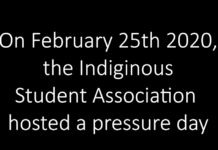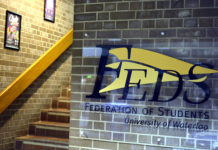On Jan. 26, the University of Waterloo announced that it is joining universities and colleges across Canada in the Academics Without Borders (AWB) Network.
The Network connects faculty and researchers in Canadian institutions with universities and colleges in low- and middle-income countries. The goal is to help drive systemic change, which AWB seeks to do by strengthening higher education in these countries.
Professor Ian Rowlands, the head of Waterloo International, spoke to Imprint about this partnership. “As we are now a member, we’re delighted to be able to publicize the opportunities that AWB, through its global network, has cultivated and developed in partnership with its connections around the world,” Rowlands said.
Rowlands emphasized that although the focus is on Canadian institutions helping institutions in lower- and middle-income countries, he also sees UW’s membership as a place for UW staff and faculty to gain experiences and perspectives to bring back to UW. He related the initiative back to his own international experiences through the Association of Commonwealth Universities (ACU), saying, “When individuals have an outbound experience — so, in this case, helping with capacity building, be that curriculum development, be that academic management, in educational institutions in the Global South — yes, they will help those universities there, but my own experience … is that then affects your own worldview and your own understanding of [how] the world works.”
The available volunteer opportunities are determined by AWB’s partner institutions in developing countries. This means the institutions that will be receiving the help can recognize their own needs and propose their own plans to address them, ensuring the volunteer work done through AWB has a local focus and addresses the needs of schools as they see them.
Greg Moran, executive director of AWB, has spent his career in higher education, including being a professor and provost emeritus at Western University, as well as being provost and chief academic officer at Aga Khan University in Nairobi, Kenya. In an interview with Imprint, Moran said, “I really believe in the importance of higher education informing the kinds of societies that most of us like to live in, the ones which are healthy, have a sense of shared prosperity and stability.”
By strengthening colleges and universities in lower- and middle-income countries, access to improved higher education isn’t restricted to those who can afford to travel internationally, said Moran. There are also many intangible benefits to developing cities and countries that have a university or college. “It has spin-off impacts on the community,” Moran observed. “Just simply being there is important to the functioning and the wealth of the community.”
When asked what the benefit of the Network is, Moran said it is both symbolic and practical. Symbolically, it shows that the member institutions see global development as part of their mission, whereas on a practical level, universities and colleges who are members of AWB’s Network get access to volunteer opportunities before anyone else, and staff and faculty in member institutions are able to propose projects to AWB twice a year, a privilege usually reserved for the institutions who will be benefiting from said projects.
Moran concluded the interview by stating, “We’re thrilled to have Waterloo come to join the network because it’s one of the finest universities and most innovative universities in the country, and we think that they’re going to be really good partners … it’s going to be a good relationship and I think a great benefit to both Waterloo and to us at Academics Without Borders, and most importantly to our partners all over the world.”
More information about AWB can be found at awb-usf.org, and more information about Waterloo International can be found on the UW website.
































